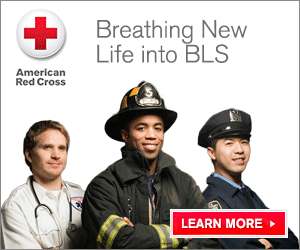top of page
Basic Life Support
$110.00
Student Name
Enter your text
Student Email
Enter your text
Student Phone Number
Enter your text
Daily Class Locations (Classes held 7 days a week)
Date of Class
Please choose a date
Time of Class
Please choose
Payment must be recieved at least 24 hours prior to class time.
Please choose
Terms and Conditions: If you need to cancel or don’t attend the course, you will forfeit your payment. We reserve the right to cancel a class due to lack of participation, Instructor illness/ emergency. Review holiday closings and COVID19 Social Distancing Guidance prior to paying
Please choose
1
Save this product for later
Basic Life Support
Product Details
Brand:
American Heart Association
Basic Life Support Program Overview
The American Red Cross Basic Life Support (BLS) course is designed to train healthcare
professionals including nurses, physicians, EMS professionals, and other healthcare and public safety personnel to respond to breathing and cardiac emergencies in adults, children and infants.
Content in this program is consistent with:
professionals including nurses, physicians, EMS professionals, and other healthcare and public safety personnel to respond to breathing and cardiac emergencies in adults, children and infants.
Content in this program is consistent with:
- The International Liaison Committee on Resuscitation (ILCOR) 2020 International
- Consensus on Cardiopulmonary Resuscitation and Emergency Cardiovascular Care
- Science with Treatment Recommendations.
- The American Red Cross Focused Updates and Guidelines 2020.
Basic Life Support (BLS) Course Cost
$100.00
BLS Provider Course Estimated Time
4 hours
Basic Life Support (BLS) Course Learning Objectives
• Apply concepts of effective teamwork when caring for a patient experiencing a life-threatening emergency.
• Integrate communication, critical-thinking and problem-solving skills during a high-performance BLS team response.
• Apply a systematic, continuous approach to assess, recognize and care for adults, children and infants experiencing a life-threatening emergency.
• Perform a rapid assessment for responsive and unresponsive adults, children and infants.
• Effectively care for adults, children and infants in respiratory arrest.
• State the principles of high-quality CPR for adults, children and infants.
• Identify BLS differences among adults, children and infants.
• Provide high-quality chest compressions for adults, children and infants.
• Deliver effective ventilations to adults, children and infants using a pocket mask and bag-valve-mask (BVM) resuscitator.
• Demonstrate effective use of an automated external defibrillator (AED) for adults, children and infants.
• Provide high-quality BLS care for adults, children and infants in single- and multiple-provider situations.
• Deliver effective abdominal thrusts, back blows and chest thrusts for adults, children and infants with airway obstruction.
• State the principles of care for a patient experiencing an opioid overdose.
• Integrate communication, critical-thinking and problem-solving skills during a high-performance BLS team response.
• Apply a systematic, continuous approach to assess, recognize and care for adults, children and infants experiencing a life-threatening emergency.
• Perform a rapid assessment for responsive and unresponsive adults, children and infants.
• Effectively care for adults, children and infants in respiratory arrest.
• State the principles of high-quality CPR for adults, children and infants.
• Identify BLS differences among adults, children and infants.
• Provide high-quality chest compressions for adults, children and infants.
• Deliver effective ventilations to adults, children and infants using a pocket mask and bag-valve-mask (BVM) resuscitator.
• Demonstrate effective use of an automated external defibrillator (AED) for adults, children and infants.
• Provide high-quality BLS care for adults, children and infants in single- and multiple-provider situations.
• Deliver effective abdominal thrusts, back blows and chest thrusts for adults, children and infants with airway obstruction.
• State the principles of care for a patient experiencing an opioid overdose.
bottom of page
